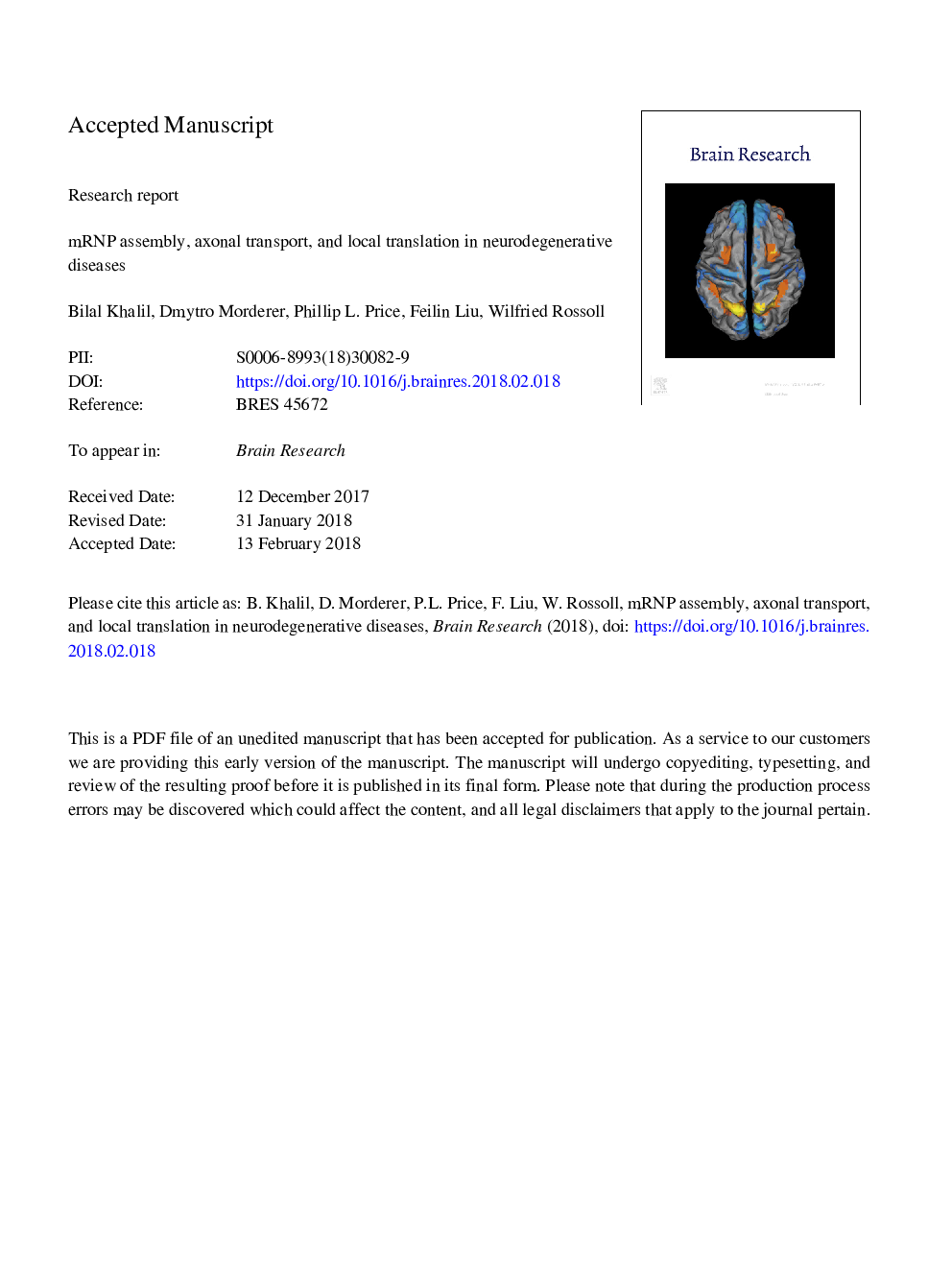| Article ID | Journal | Published Year | Pages | File Type |
|---|---|---|---|---|
| 8839748 | Brain Research | 2018 | 47 Pages |
Abstract
The development, maturation, and maintenance of the mammalian nervous system rely on complex spatiotemporal patterns of gene expression. In neurons, this is achieved by the expression of differentially localized isoforms and specific sets of mRNA-binding proteins (mRBPs) that regulate RNA processing, mRNA trafficking, and local protein synthesis at remote sites within dendrites and axons. There is growing evidence that axons contain a specialized transcriptome and are endowed with the machinery that allows them to rapidly alter their local proteome via local translation and protein degradation. This enables axons to quickly respond to changes in their environment during development, and to facilitate axon regeneration and maintenance in adult organisms. Aside from providing autonomy to neuronal processes, local translation allows axons to send retrograde injury signals to the cell soma. In this review, we discuss evidence that disturbances in mRNP transport, granule assembly, axonal localization, and local translation contribute to pathology in various neurodegenerative diseases, including spinal muscular atrophy (SMA), amyotrophic lateral sclerosis (ALS), frontotemporal dementia (FTD), and Alzheimer's disease (AD).
Related Topics
Life Sciences
Neuroscience
Neuroscience (General)
Authors
Bilal Khalil, Dmytro Morderer, Phillip L. Price, Feilin Liu, Wilfried Rossoll,
